Setting up a Zero Waste shop in the UK
Posted by Pawan Saunya onThis page will guide you through how to setup an online zero waste / plastic free shop and also give tips on setting up a physical brick and mortar Zero Waste shop too.
Before we start, I would like to encourage you to take a deeper look at the questions below. If it is 100% yes to these questions without any hesitation, then please read on.
Questions to ask yourself
-
Starting and running a business properly requires 60-100 hours a week. This type of workload will last couple of years or so. Do you have that time? Are you willing to put in the work?
-
Starting a business requires reinvesting all the money you make. Could you go on without a proper salary for 2 years or more?
If the answer for those questions is HECK YEEE! Then let’s proceed.
First, we will look at making an Online Plastic-free / Zero Waste website.
Setting up the website
Do you need to know any coding languages to setup an online web-store like Zero Waste Club? Absolutely Not!
We started out using Squarespace. We found them to have the most reasonable plans with the simplest platform to use. If you are starting out, we would recommend the “Online Store - Basic Plan”. We are not sponsored by Squarespace. But they have a 10% discount code if you search for it on the inter-webs. The code is GIMME10 which you can find here. If you are a student, they will even give you 50% off your first year! If you have any questions about setting up etc, you can find all the answers by Googling your question followed by the word “Squarespace”. Or you can check out Squarespace help place.
Eventually we moved to Shopify as it had more functionality. If you are not tech savvy, would recommend to start off with Squarespace.
So after you have your website up and running, we would recommend to connect payment methods Stripe and Paypal. Which is really easy to do on the Squarespace and Shopify platforms.
Suppliers and contacts to make an online plastic-free food business
Food suppliers
Infinity foods, Essential Trading, Super Nutrients, Suma wholefoods, Naturally Good Foods provide many food items in bulk paper packaging at wholesale prices. If you get it in flexible plastic packaging you can use TerraCycle Zero Waste boxes to get it recycled. You can also buy reusable Zero Waste products wholesale from us.
Eco-food packaging
After getting the food, you can pack it in biodegradable, recyclable and compostable packaging called Earth Pouch from Sirane. You can give them a custom design or just get plain packaging then stick over a biodegradable label. You can even print your own black & white labels using a heat printer such as a Dymo printer that doesn’t use any ink.
Packing the food
You may want to pack the food at home or in your warehouse. Make sure it is in line with the food hygiene and allergy guidelines. You can also outsource it through pre-packers such as Imperial Food and Packing.
Shipping your goods
Next is the logistics, the shipping your goods.
Things you will need to do Zero Waste shipping:
-
Recycled boxes. You can reuse old boxes or find plenty recycled kraft paper boxes online.
-
Plastic-free eco paper tape (water activated)
-
Green Jiffy Bags for small items
-
For non-recyclable office waste, you can use a TerraCycle Zero Waste box to recycle them effectively.
The cheapest and the easiest way to ship items under 2kg is through Royal Mail. So simply make a personal account on Royal Mail online, print the labels and ship them out. For shipping over 2kg parcels, would recommend Parcel2Go. Or as you scale up, would recommend to get a DPD business deal where they come and pick up from you. When it gets to a point you have a lot of orders every week and do not want to ship it yourself. I would recommend to move to Third Party Logistics company that will store and ship things out for you.
Getting your message out there
-
Do things that add value to the brand rather than posting pictures of turtles
-
Best way to boost social following is to collaborate and create content for accounts with similar values with larger followings.
-
Have a good product(s) and it will speak for itself
-
If you are looking to be stocked in shops, email them and give them free samples to trial in their store.
-
You can always market through Pinterest, Instagram, Google Ads and Facebook ads too. Make sure that your ads are trackable. So you can see if the ad is generating revenue and if the return is good enough to keep it going.
-
Hotjar - free service that generates heat maps and recordings of how your visitors interact with your website. Really really powerful way of getting insight into what to keep, change and remove from the website.
Setting up a physical Zero Waste shop
Setting up a physical shop is much harder to do with all the extra overheads. But looks like people really do love physical Zero Waste shops and it is better for the environment too. We do not have a physical shop, so I would highly recommend to read this PDF from Earth Food Love, a very successful Zero Waste shop in Totnes. All credit to Earth Food Love. Please do read the PDF as it goes in-depth of many things.
Below is some info from the PDF and our findings from other physical Zero Waste shops.
-
Location and footfall is everything for a physical shop - choose wisely
-
Budget in everything! From rent to stationary
-
Marketing! Use online and in-person marketing. Build hype even before the shop opens. Get people to sign up to your newsletter, Facebook, Instagram etc
-
Food suppliers: Infinity foods, Essential Trading, Super Nutrients, Suma wholefoods, Naturally Good Foods provide many food items in bulk paper packaging at wholesale prices.
-
Take card and contactless payments. Best rates currently is with Square for revenues below £50,000 per year. Would recommend Worldpay for larger revenues as their % fee is far less but there is a higher fixed cost.
-
Food dispensers & nut grinders: Martek Food Systems, Glasbin, Super Nutural
-
Electronic Point of Sale [EPOS} Tills and Zero Waste Self Service Weigh Label Scale Systems and self-service weighing systems: SW Systems
-
Manage well! Always order goods well in-advance before going out of stock.
Workshops and consultants that can help you set up your physical Zero Waste shop
Clean Kilo Zero Waste Shop Set Up Workshop - Next one 6th & 7th April 2021
Workshops and advice from Unpackaged - Next one 9th July 2021
I would highly recommend to interact with other shop owners and possibly even volunteer to gain that essential knowledge and then move forward to setting up a physical store. As the risk is much higher for starting a brick and mortar shop. So you better be prepared.
Thank you for using reading this guide and hopefully it was useful to you.
If you are interested in buying wholesale from us. You can click here.

Pawan Saunya
Co-founder of Zero Waste Club really wants to accelerate the transition to sustainable mindful consumption and production of goods. So likes to spread the good vibes whenever he has the time.
The Importance of Eating Seasonally and Locally
Posted by Pawan Saunya onAs a society, we live in a world where we expect everything to be instant and accessible- including our food. It has become the norm for apples to be available all year round, and to be able to buy strawberries in December. If you fancy a banana, you just go to the closest supermarket- it’s that easy! We have become so disconnected from the food we eat that we don’t question why we’re eating a banana from Ecuador or enjoying raspberries when there’s snow on the ground. The damage this disassociation is doing to our environment is widespread, and changes need to be made urgently.
Currently, 95% of our fruit comes from abroad, along with over half of our vegetables. The carbon emissions produced by this transportation is greatly damaging the environment. In fact, studies have shown that if air freight is used for a product, the carbon emissions of that product go up by a factor of 10. Buying British produce obviously reduces these carbon emissions, however, it doesn’t completely solve the problem if you’re still buying from across the country. Ideally, we need to be looking at buying locally. If you buy from a shop selling local produce, it’s likely that the food has been grown 10-30 miles away, and is coming straight from the farm that grew it. It is also likely that this food has been harvested within the last 24 hours (rather than over a week ago), meaning it will be much fresher.

Buying in season is also vital. You can buy British tomatoes throughout the year, however, this does not mean they are in season all of the time. When not in season, they will have been grown under heated glass for much of the year. For tomatoes grown out of season under heated glass in the UK, CO2 emissions are about 2.5kg per kg of fruit. When you compare this to the CO2 impact of trucking them in from Spain, where they grow naturally, the emissions of carbon is 10 times greater. This shows that although it is important to buy locally, it is even more important to buy in season.
If we want to save our planet it is vital that we start being more conscious about where our food is coming from. Making some small changes isn’t hard but can make a big difference, and you might even discover something new you like along the way.
The benefits of buying locally and in season include:
•A lower carbon impact
•Supporting your local area
•Fresher food
•Produce is likely to be organic
•Higher appreciation for what you are eating (not having access to strawberries all year round means when you do eat one, it will taste all the better)

Local and Seasonal Shopping Tips:
•Visit farmers markets! There are over 300 markets held weekly across the country. Take a look here to locate your nearest market.
•Buy from shops that have a proven link to a nearby farm- butchers, bakers, greengrocers, and delis are all great places for this.
•When in a supermarket, look for the Union Jack flag on produce.
•Before you pick up a piece of fruit or veg, think twice about where that has come from. For example, it doesn’t take much thought to realize bananas don’t grow naturally in the UK.
• Consider Box schemes- these provide fresh, seasonal produce from smaller producers right to your door. The Soil Association is a great website to get more information on the schemes available.
•Farms with a Pick Your Own Scheme are worth a visit- picking your own produce can be fun, and you’ll have the assurance of knowing that what you’re picking is both local and in season. Go here to find farms local to you.

Poppy Robson
Is working as an intern for Zero Waste Club, bringing together her love of the environment and her passion for writing. She has a love of nature and the outdoors and is always looking to encourage more people to lead a zero waste life. You can find her on Instagram as @poppyrobson.
What It Means to be "Zero Waste"
Posted by Pawan Saunya onWhen you think about a zero waste lifestyle, what comes in your mind? I’ll be honest, when I first heard the phrase, I had zero ideas (see what I did there?) about what it meant. But, I found out. Essentially, a zero waste lifestyle is a lifestyle where an individual lives in a way that produces little to no waste. Wikipedia agrees, defining zero waste as “a set of principles focused on waste prevention that encourages the redesign of resource life cycles so that all products are reused. The goal is for no trash to be sent to landfills, incinerators, or the ocean.” While I don’t believe in one particular standard for all and that a definition can or should shape your life without exceptions, there is undeniable truth and benefit in living your life according to zero waste, even though it can and does mean different things for different people.
What does zero waste look like in practice?
In a perfect world, it would be fridges loaded with loose produce, cupboards beautifully stacked with glass jars full of grains, pasta and spices, and closets full of homemade cleaning products. Wouldn’t it be wonderful if every household looked like this? It’s not impossible, it’s just a very hard job. Why? Because we are very habitual creatures and we don’t like changing our routines and giving up on the ease of grab and go (a very wasteful principle). Adopting zero waste principles in your daily life is indeed difficult, but only at first. You can look at zero waste as a skill, and like any skill, it can be learned and improved.

In my opinion, the very first ingredient to going zero waste is awareness. In order to reduce your waste, you have to become aware of how much you produce in the first place. When you are aware, you can see things clearly and make better decisions accordingly. Otherwise, you are just sleepwalking and choosing by default, which lends itself to a grab and go mindset.
After you have done some assessment about how much waste you leave behind, think of what options you have to instantly avoid the single-use plastics you use on a daily basis. For example, if you get coffee to-go everyday, you can replace the single-use coffee cup you would normally get with a reusable bamboo cup you bring yourself, or if you find yourself using plastic straws frequently, switch to using no-straw or a reusable stainless steel straw. Take small steps and go from there. Learn, try, and evolve your habits.
The definition of zero waste may be as clear as a statement, but in real life and in practice, it is different for everyone- and that’s OK. We all have different needs, lives, opinions, and priorities. I can’t tell what your priority be when you go zero waste. However, what I can tell you is that zero waste as a whole should be one of your priorities, because we have to urgently take action, no matter how small, to help save our planet.

”We do not inherit our Earth from our ancestors; we borrow it from our children”.
My heart breaks when I think about my own, and other, children, and every plant and creature we share this Earth with, because of the struggles that they’re being left with due to our collective ignorance. Nature is suffering, and we have to help. It’s absolutely necessary and possible to make things better again through sustainable behaviour. Do not be afraid to be different, to talk about it, and to change things around you. Do it on your own terms and do it in your own way, but do it!
How do you understand zero waste as a definition? What is your zero waste journey like?
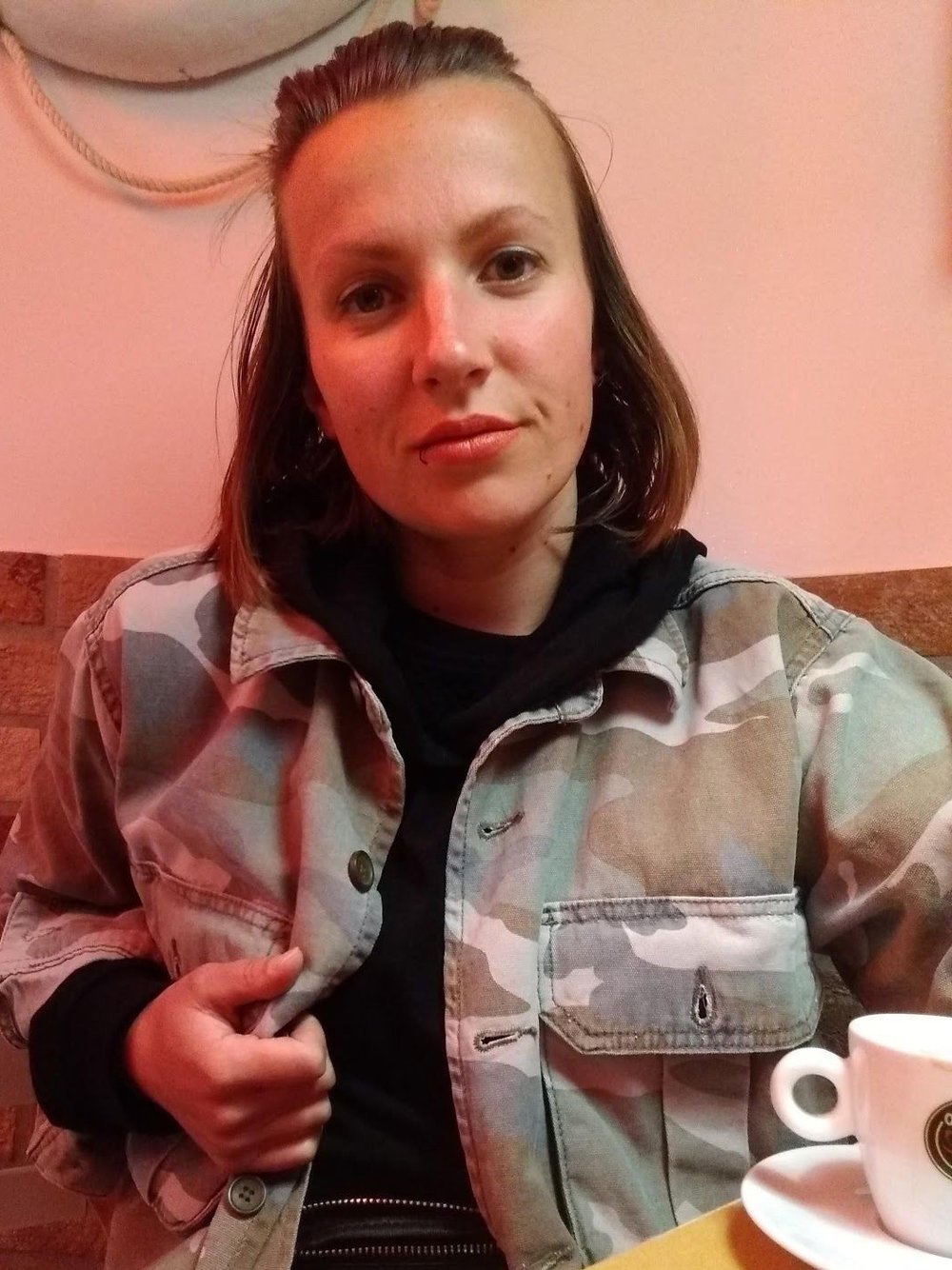
Monta Musinska
Hi! I’m a full-time mom to two amazing boys. In between chasing them around, homeschooling and all other things, I really enjoy nature, reading, meditating, self-development, travelling, capturing moments on camera and, in general, trying to be a considerate and compassionate human being and teaching the same to my boys. Minimalist, zero-waste, and healthy plant-based living is my passion and my way of living, and now as an intern blog writer for Zero Waste Club, I’ll be writing about these things and spreading the message. You can find me on Instagram @montamusinska
How to Have a Low Waste Picnic
Posted by Pawan Saunya onAs rain clouds are drying up and the summer weather arrives, it's a perfect time to prepare ourselves for zero waste picnics. Or, low waste picnics, because let's be honest, it's very difficult to live your life with zero waste- especially if you’re just starting out. Don’t let your hands down if you’re not “perfect” at zero waste- the environment will be impacted tremendously by a lot of people doing zero waste imperfectly, rather than a handful of people doing it perfectly.

Get Your Kids Involved:
You’ve probably heard about the monster called “plastic pollution” that is taking shape on our beautiful earth, created by our lack of education on the impacts of plastic. Making small swaps can be major in reducing plastic pollution in the long run, so let’s change our habits now, and educate our children on why these swaps are important for the sake of our earth.
Having a low waste picnic is cheaper, healthier, and more environmentally friendly than a traditional picnic, and it’s a great opportunity to educate our children on plastic pollution. When you’re shopping you can talk to kids about why glass or aluminum is better than plastic packaging, you can prepare snacks at home with your kids for eating out rather than going to shop to get unhealthy, plastic-wrapped food, you can explain to them why you pack their lunch in a bamboo lunchbox instead of plastic one, and you can tell them why it’s better to drink water from a stainless steel bottle instead of the ever popular single-use plastic bottle. In order to make better choices later in life, our children have to be involved in these conversations now.
Low Waste Shopping:
Shopping sustainably is one of the biggest ways you can reduce your waste. Here are some ideas on how you can shop sustainably:
● Choose loose fruit or veggies wherever possible instead of produce pre-packed in plastic. Use paper bags if they are provided to carry the produce, or ideally, use reusable cotton bags (or if you take just three carrots, believe me, you don’t really need any bag to carry them).
● When you’re checking out your loose veggies and fruits, tell the cashier to skip the plastic bags. I have been in shops many times with a trolly full of loose produce, and cashiers have tried to put them in their little plastic monsters on hand. But, every time, I kindly (but urgently) refuse. This was uncomfortable at first, because it felt like I was being rude, but I always try to just smile and be polite. I don’t want to hurt anyone's feelings, but I do want them to know that I am against plastic bags, hopefully sending a message to the store that they should consider banning plastic bags.
● If you’re getting bread, buy it from a bakery- it’s fresh, delicious, and can be plastic free if you bring a reusable bag to put it in.
● Buy glass jars or bottles instead of plastic when buying oil, tomato sauce, mayo, etc..
● Buy loose leaf tea instead of tea bags (which are laced with plastic).
● If you have to have crisps, candy, or snacks like that, buy a big pack instead of individual servings to cut down on plastic packaging. Same for little bottles or packs of juice- take a big pack and share between kids (I personally never include them in our picnic basket).
● Buying snacks in bulk is always a great idea- you can get seeds, nuts, raisins, etc.. in big bags and make a mix of those to include in your picnic snacks, or ideally, you can buy them loose from bulk bins and put the snacks in your own reusable bags.
These are a great couple of ideas if you’re just starting out and looking for little swaps in the supermarket. Remember- small changes go a long way. Thumbs up. You’re doing great!

Low Waste Eating:
Since we know that eating plant-based greatly reduces your impact on the environment, packing plant-based foods ensures that you’re not only shopping and packing sustainably, but you’re eating sustainably, too. Some plant-based food ideas include:
● Sandwiches. Any filling, shape, size- you can’t go wrong
● Homemade hummus and fresh veggie sticks
● Fresh, sliced fruit and berries
● Guacamole
● Home-popped popcorn (you can make it salty or sweet)
● Nut butter snack-balls
● Banana bread. If you have a spare hour for baking, it’s a fantastic and easy treat
● Home-made ice-lollies (pack with ice blocks for the perfect treat for kids)
● Baked potatoes (we are potato people)
● Nut, seed ,and dried fruit snack mix

Low Waste Packing:
Reusable lunch bags, water bottles, and cups made out of materials like bamboo, glass, or stainless steel are ideal for packing. Some great items for packing include:
● Bamboo or stainless steel lunch boxes
● Soy wax wraps (perfect for sandwiches)
● Glass jars
● Glass or stainless steel water bottles
● Reusable cups for coffee, tea, juice, etc.
● Bamboo forks, spoons, or forks
● Reusable towels to use as napkins
If you don’t want to buy anything new, you can reuse plastic containers that you already have, such as takeaway boxes. It’s more ecofriendly to use things you already have, because you won’t be demanding any energy or resources to make new items. If you don’t have any containers readily available to use, I don’t suggest buying anything that is made of plastic, as it is clear that all plastic is bad for the environment (and even our health). It is always best to use reusable, non-plastic containers.

The possibilities are endless to have a great and easy low waste picnic this summer. Keep trying, failing, and succeeding with different ways of packing and with what food you pack, and in no time, you’ll know exactly what works for you and your family.
My family and I started low-waste picnic journey around 2 years ago and I have to say- it’s a never-ending process to figure out what works perfectly. Sometimes we’re on point, sometimes we’re not. But, just reminding myself how far we have come, how much less plastic and waste we are creating, and how much we’ve learned is a great reminder and motivator to spread this message as far and wide as I can. Every single one of us can change a thing or two- it’s a responsibility of a collective. If we don’t act now, the consequences will be unimaginable.
If you are interested in finding bulk food shops near you, go to the bulk food store finder.
Let’s have beautiful, mindful, low waste picnics this summer.

Monta Musinska
Hi! I’m a full-time mom to two amazing boys. In between chasing them around, homeschooling and all other things, I really enjoy nature, reading, meditating, self-development, travelling, capturing moments on camera and, in general, trying to be a considerate and compassionate human being and teaching the same to my boys. Minimalist, zero-waste, and healthy plant-based living is my passion and my way of living, and now as an intern blog writer for Zero Waste Club, I’ll be writing about these things and spreading the message. You can find me on Instagram @montamusinska
Six Companies Who Are Paving the Way for a Sustainable Future
Posted by Pawan Saunya onAs the climate crisis looms and marine environments become plagued with plastic pollutants, transitioning our economy to one that values sustainability and a circular model is more vital than ever. As governments remain hesitant to overhaul their economy to one that rids of single-use products, values sustainable development, and promotes a zero-waste mindset, businesses are taking it upon themselves to transition their business models to ones that push forward this idea of a zero-waste, circular economy. Here are six companies who are inspiring us to think circular.
Subaru
While it may seem ironic to include a car manufacturer in with companies doing environmental good, Subaru is truly creating a circular model of car manufacturing that could serve as a model for other manufacturers in years to come. Subaru is a zero-landfill automaker and has been such since 2004- the last time they sent something to a landfill. They have been pioneers of sustainable practices in the automotive industry since the late 80s, receiving a Recycling Achievement award in 1989 for their efforts to reduce waste and an Environmental Purification award in 1993 for their paint recycling program that kept over three million pounds of paint from landfills.

Plaine Products
Plaine Products is working to divert plastic waste from landfills by targeting a piece of plastic found in most peoples homes- shampoo bottles. Plaine Products uses an online, subscription-based platform to sell non-toxic shampoo, conditioner, body wash, and body lotion in reusable bottles. All of their ingredients are vegan and approved by the Environmental Working Group. Consumers can subscribe to the website to receive a new bottle of product as often as they see fit. Each time consumers receive a new bottle of product, they also receive a box and shipping label to return the old bottle for sanitation and reuse. This model is combining zero waste with convenience, attracting those who want to easily and conveniently reduce their waste. The company also partners with non-profits and other groups to help advance global sustainability efforts.
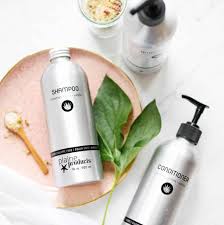
THINX
One woman will use nearly 11,000 single-use, disposable menstrual products in her lifetime. Many of these products will be made with synthetic materials, meaning they’ll still be sitting in a landfill long after we’re gone. As people have started moving towards a zero waste, circular mindset, many women have recognized the need for reusable period products- that's where THINX comes in. THINX makes reusable period underwear for menstruating humans, diverting single-use period products like pads and tampons from the landfill. They have a goal of making the company zero waste by 2025, and have made empowering women one of their central goals (a goal that will help fight climate change).
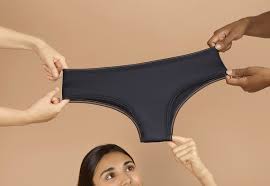
Algotek
While having no single-use products on the market is the ideal, circular world, many companies simply won’t (or can’t) completely rid of their use of single-use products. Algotek is hoping to meet these companies in the middle by providing the market with an algae-based plastic alternative. This algae-based “plastic” is 100% biodegradable and dissolves safely into water- making it safe for marine ecosystems. Algotek plastics are diverse in their thickness and durability, making it easy for them to tailor to the needs of different companies. Algotek is sustainable from the production side of things as well, as growing the algae needed to make these plastics absorbs CO2 from the atmosphere, offsetting emissions. Producing the plastics also creates no hazardous waste, and any byproduct from the creation of the plastic is recycled back into the system of production.

Loop
Loop is an online, global shopping platform that is working with big companies like Clorox, Febreze, Häagen-Dazs, and Pantene to sell their products in reusable packaging. Consumers can go to the Loop website to buy the name brand cleaning products, beauty products, or food products they would normally buy in any typical store. The twist? Instead of receiving them in plastic bottles, their usual packaging, they will receive them in reusable, stainless steel containers. When they use up the product, they simply send back the containers to Loop, who will sanitize and reuse the containers for future orders. This platform of selling traditional products in a non-traditional way is attracting consumers who want to reduce their waste, but don’t want to give up the products from big name brands that they have grown to love.
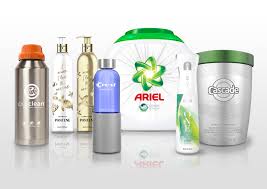
Zero Waste Club
And of course us. Hahaha. We are dedicating our lives to helping the planet and people. So if you don’t already know; Zero Waste Club is an online shopping website based in aiming to make plastic-free, sustainable, and ethical living accessible. They sell food, beauty products, and household products that are all made with sustainable and ethical practices, and also offer a wholesale option for other shops looking to incorporate sustainable, plastic-free items into their inventory. All of their items come in plastic-free packaging and are shipped completely plastic-free. In addition, the cost of planting a tree is incorporated into the cost of each item, so with each item they sell they plant a tree through the Eden Reforestation Projects. So far with this initiative, they have planted 14,140 trees.
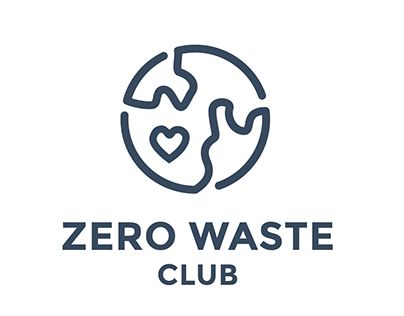

Kayla Guilliams
Is the blog manager for Zero Waste Club, combining her love for writing with her passion for all things environmental sustainability. She is currently a student at the University of North Carolina at Chapel Hill where she is studying journalism, environmental studies, and food studies in hopes of building a career in environmental activism. You can find her on Instagram as @kaylaguilliams.
